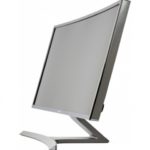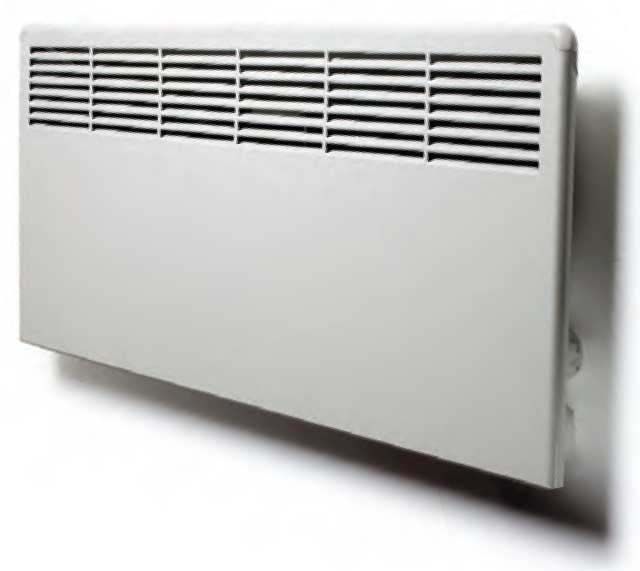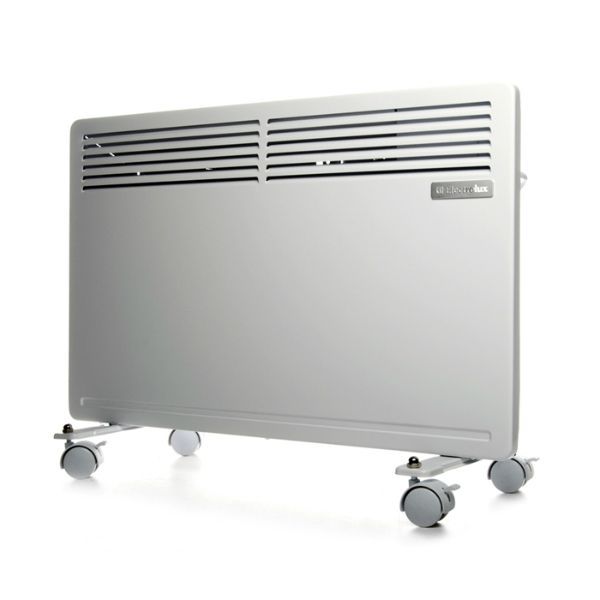Pros and cons of convectors
Every time the cold weather approaches, we begin to think about comfort. How will they heat it, is it worth thinking about an additional heating source, which one is better to choose? Winter can be different, sometimes it can be warm and therefore you shouldn’t think about an additional source. And sometimes on cold winter evenings we regret that we didn’t think about it at one time (especially for private houses). The most popular today among consumers is the convector. So let's take a closer look at it now.
The content of the article
Pros and cons of convectors
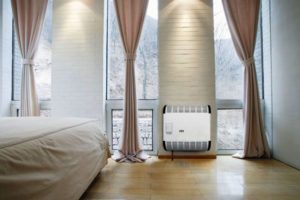 Before going into more detail on the pros and cons of these devices, let's first look at what it is.
Before going into more detail on the pros and cons of these devices, let's first look at what it is.
Reference. There are two types of convectors: water and electric. The first one is respectively connected to the water heating system, and the other is the electric heating system of the house.
The electric convector has two placement methods: attached to the wall or placed directly on the floor.
pros
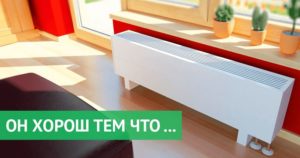 It is believed that the convector is the most economical of all its brothers. But before choosing it, let's figure out if this is true. Consider all his positive and negative qualities.
It is believed that the convector is the most economical of all its brothers. But before choosing it, let's figure out if this is true. Consider all his positive and negative qualities.
Compactness
This is one of the most important advantages of this device.They are quite thin, similar to standard steel or aluminum radiators. But there are also narrower models on the market that are perfect for installation under low windows. In addition, you can find glass convectors. Their main feature is that they are very thin. In this case, heating occurs due to the glass with the conductive element from which they are made.
Housing characteristics
The convector consists of:
- heating element, which, due to its area, ensures heating of the air;
- control systems, it can be either electronic or mechanical. It allows you to set a certain air temperature that is optimal for the room depending on the season. If necessary, it can be lowered or increased;
- frame. It protects all components of the convector.
Due to its simple design, the convector heats the air quite quickly when turned on, which is an important factor.
Ease of operation and installation
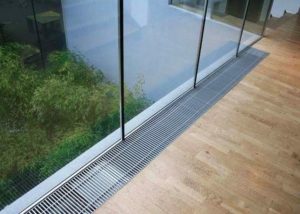 Due to their compactness, they are very mobile, which plays a significant role when installing and carrying. And this will please any owner. After all, this device is low-cost, unlike standard heating. When planning the classic heating of a private house or cottage, you need to think about:
Due to their compactness, they are very mobile, which plays a significant role when installing and carrying. And this will please any owner. After all, this device is low-cost, unlike standard heating. When planning the classic heating of a private house or cottage, you need to think about:
- where the boiler will be installed;
- how to lay pipes;
- how many radiators to choose;
- check the system for leaks.
And even this does not guarantee that your heating system will work without interruption.
And if you decide to install water heating, then be prepared for the fact that it may take a lot of your time and effort.
Unlike its competitors, this type of heaters can be installed in a matter of minutes or hours, which, of course, speaks to their advantage. You only need:
- install brackets;
- hang heaters;
- connect to electricity;
- turn on the convectors and set the desired temperature.
And after that, enjoy the warm and cozy atmosphere of your home.
Life time
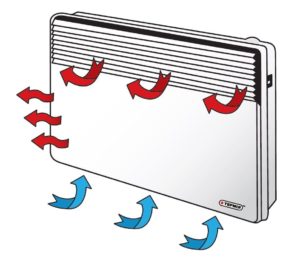 These products are quite durable, on average their service life reaches ten years, but some models can last you longer, it all depends on the manufacturer. Many manufacturers provide an additional guarantee, which is also important.
These products are quite durable, on average their service life reaches ten years, but some models can last you longer, it all depends on the manufacturer. Many manufacturers provide an additional guarantee, which is also important.
In this case, no additional operations are required when using this equipment: eliminate leaks, change the coolant, no need to bleed air, etc.
Financial inclusion.
This is also a huge plus. Their affordable price will allow you to reduce your family budget while heating your home. It is obvious that mechanically controlled convectors will be cheaper than electronic ones. Well, glass ones will be the most expensive of all. Therefore, you can choose which option to choose, it all depends on your wallet.
Cons of convectors
Despite all the advantages that convectors have, they also have a number of disadvantages. Let's look at them.
Environmental friendliness
When purchasing these products, you should be aware that convectors generate dust, i.e. they disperse dust throughout the room. It will not be dangerous for people suffering from allergies. But small children and allergy sufferers will feel this on themselves, since dust is harmful. This does not mean that you should refuse to purchase these models. No. Just do wet cleaning more often and wipe the dust directly from the heater.You can also purchase a model with a built-in filter. This will be a good solution to this problem.
Important. Do not forget to clean the filter, otherwise its performance will decrease.
Energy consumption
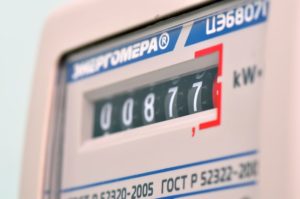
The amount of energy it consumes is the main disadvantage of this equipment. To heat ten square meters you will need 1 kW of energy. So consider: to heat a room of 100 square meters per hour you will spend 10 kW, per day - 240 kW, and per month 7200. Depending on the region and the price that is set, the amount will vary from 21,000 to 30,000 rubles. Therefore, before choosing them as heating, carefully calculate everything in advance, so as not to regret your purchase in the future.
Attention. If the house is airtight, this will significantly affect the amount of energy consumed. Get rid of heat loss.
Slow heating
Another noticeable disadvantage is heating. You will notice it only when you turn it on for the first time and if you decide to change the heating temperature. In other cases it will not be noticeable. But even this can be avoided if you purchase a heater with a built-in forced convection fan. If it bothers you, you can simply turn it off.
Other aesthetic disadvantages
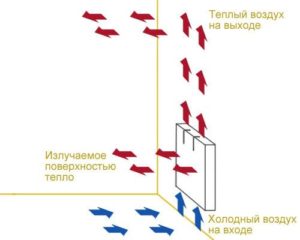 There are a number of other minor disadvantages:
There are a number of other minor disadvantages:
- minor drafts are possible, but they are practically unnoticeable;
- they may crackle slightly;
- There may be a slight odor when you first turn it on. If after prolonged use it does not disappear, it means you saved money and bought it from cheaper materials.
So don’t go cheap, buy a quality model.
So, we see that the convector, despite its disadvantages, is an excellent source of heat. But it's up to you to decide whether to buy it or not.


